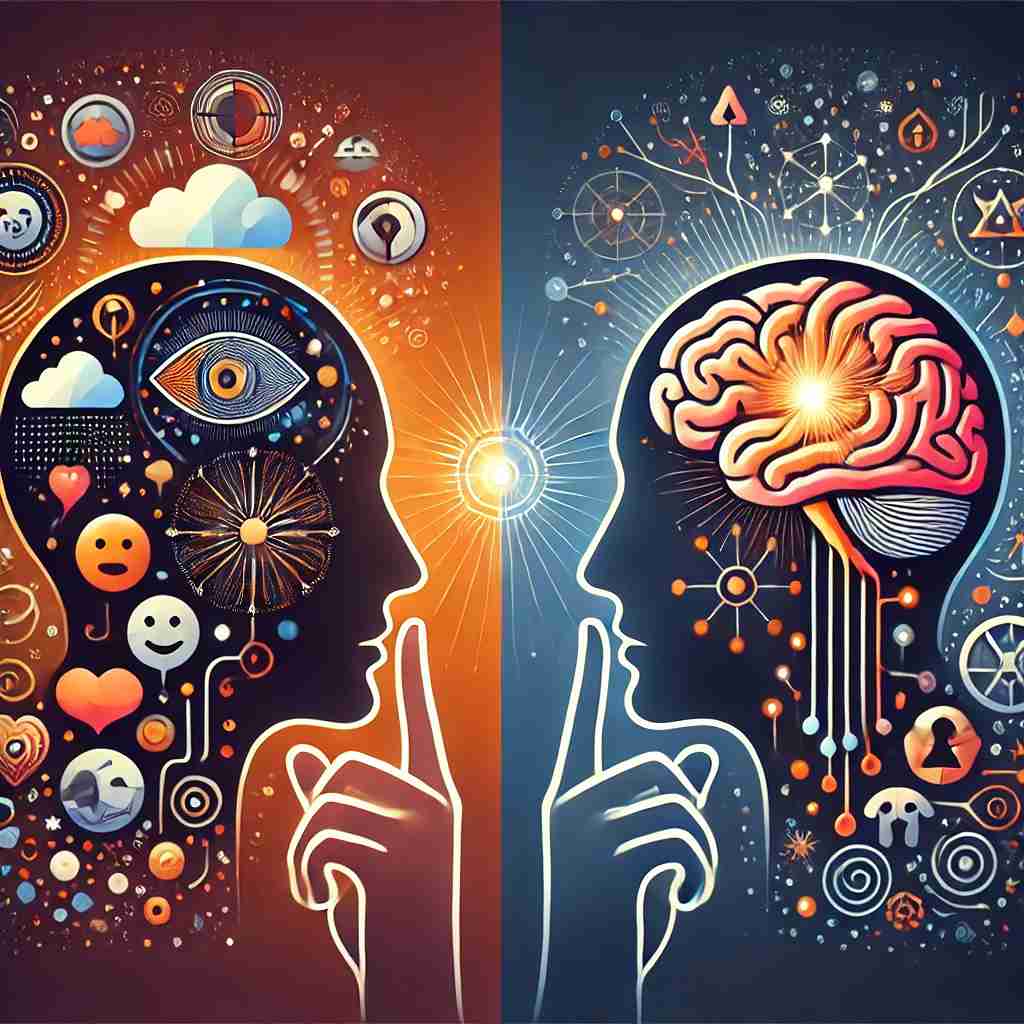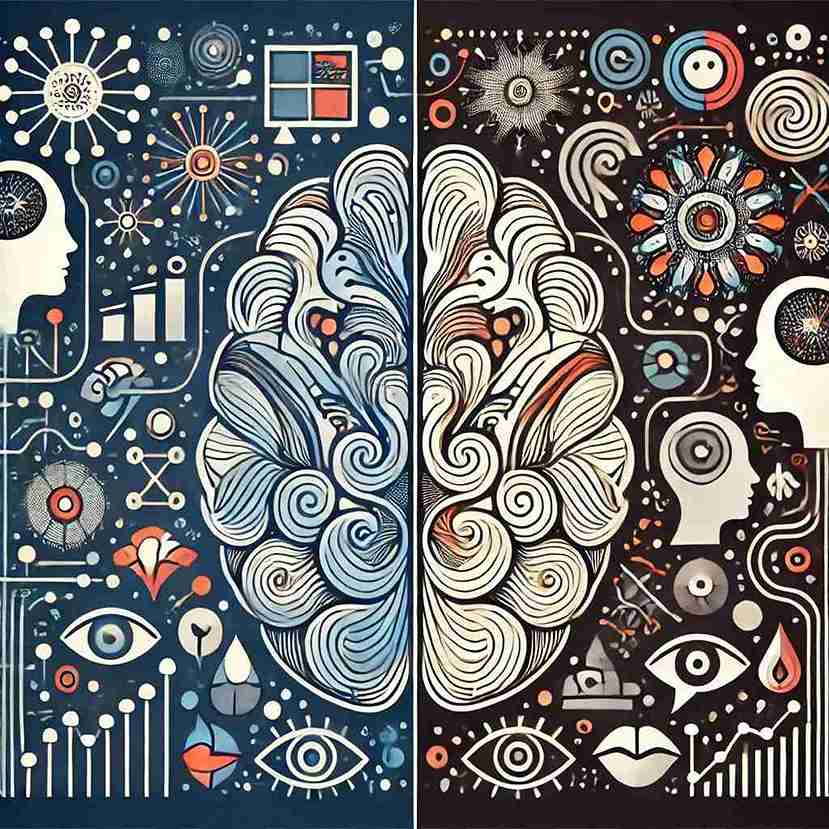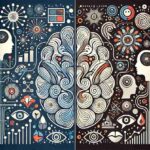What is the Difference Between Psychology and Behavioral Neuroscience?
difference psychology and behavioral neuroscience
Psychology vs. Behavioral Neuroscience: The Battle for Understanding Human Behavior!
Introduction: difference psychology and behavioral neuroscience
Psychology and behavioral neuroscience, though intertwined, operate within distinct realms of scientific inquiry. Psychology, often defined as the study of the mind and behavior, explores how individuals think, feel, and act in various situations. It delves into emotions, cognition, social dynamics, and personal development. Behavioral neuroscience, on the other hand, focuses on understanding how the brain, nervous system, and biological processes shape behavior. While both disciplines seek to unravel the mysteries of human actions, they approach the same goal from different vantage points, each with unique methodologies and focal areas.
Foundational Differences: difference psychology and behavioral neuroscience
The Scope of Psychology
Psychology encompasses a broad range of subjects, from emotional responses and personality traits to mental health conditions and cognitive functions. It aims to comprehend how individual and collective human experiences are influenced by external and internal factors. The psychological lens often zeroes in on understanding patterns in behavior, motivation, development, and mental health through observable and subjective measures.
The Scope of Behavioral Neuroscience
Behavioral neuroscience, alternatively, is rooted in biological principles, primarily examining how neural circuits and brain functions impact behavior. It seeks to explain behavioral phenomena through an anatomical and biochemical framework, focusing on synapses, neurotransmitters, and brain structures. Unlike psychology, it emphasizes the physical underpinnings of actions and emotions, venturing into the molecular and cellular realms to decode the neurological basis of behavior.
Methodological Distinctions
The methods used by these fields further distinguish them. Psychology often leans on qualitative assessments, surveys, interviews, and behavioral experiments, examining outcomes through a psychological or cognitive filter. Behavioral neuroscience, however, employs rigorous empirical techniques, including neuroimaging, electrophysiology, and animal studies, to gather quantifiable data about brain activity and its influence on behavior.
Key Areas of Study
Psychology: Mind, Emotions, and Behavior
Psychologists concentrate on understanding mental processes such as memory, perception, decision-making, and emotional regulation. They explore the complexities of human relationships, the psyche’s response to environmental stimuli, and the psychological underpinnings of mental illnesses. Their focus remains on interpreting the conscious and unconscious mechanisms that drive behavior.
Behavioral Neuroscience: Brain, Neurons, and Circuits
Behavioral neuroscientists investigate the biological roots of behavior, delving deep into how neurons communicate, how the brain’s regions coordinate to produce actions, and how chemical imbalances can result in behavioral disorders. Their research typically involves dissecting the role of neurotransmitters like dopamine and serotonin in mood regulation, reward systems, and disorders such as depression or addiction.
Overlapping Fields of Study
Though distinct, psychology and behavioral neuroscience frequently intersect. Fields such as cognitive neuroscience bridge the gap, exploring how biological processes impact cognitive functions like learning and memory. Psychologists and neuroscientists often collaborate on studies of mental health conditions, where both the psychological symptoms and biological causes are critical for understanding the full picture.

Research Approaches
Experimental Techniques in Psychology
Psychologists employ a variety of experimental designs to test hypotheses about human behavior. These include controlled laboratory studies, longitudinal studies, and field experiments. For example, to understand how stress affects decision-making, psychologists might simulate stressful scenarios and assess behavioral changes, measuring subjective reports and observable behaviors.
Neuroimaging and Biochemical Approaches in Neuroscience
In behavioral neuroscience, advanced technologies like fMRI (functional magnetic resonance imaging) and PET (positron emission tomography) scans allow researchers to observe brain activity in real time. These techniques offer insights into how different regions of the brain are involved in tasks like problem-solving or emotional processing. Biochemical approaches, such as measuring hormone levels or neurotransmitter activity, are also vital for understanding the physiological drivers of behavior.
Applications in Real-World Contexts: difference psychology and behavioral neuroscience
Psychology in Therapy and Counseling
The practical applications of psychology are perhaps most visible in mental health services. Clinical psychologists use psychological theories to treat mental health disorders through talk therapy, cognitive-behavioral therapy, and other modalities. Psychology informs education, workplace productivity, and social interventions, focusing on improving individual and societal well-being.
Behavioral Neuroscience in Medical Treatments and Interventions
Behavioral neuroscience plays a crucial role in developing treatments for neurological and psychiatric disorders. For instance, understanding the neural mechanisms behind conditions like Parkinson’s disease or schizophrenia has led to the development of medications that alter neurotransmitter activity, alleviating symptoms. Neuromodulation techniques, such as deep brain stimulation, have emerged from neuroscientific research, offering relief for treatment-resistant conditions.
Educational Pathways and Career Prospects
Psychology: Degrees and Specializations
Students pursuing psychology can specialize in areas such as clinical psychology, cognitive psychology, developmental psychology, or industrial-organizational psychology. Educational pathways range from bachelor’s degrees to doctoral programs, with careers available in counseling, research, human resources, and education.
Behavioral Neuroscience: Degrees and Specializations
Behavioral neuroscience requires a strong foundation in biology, chemistry, and psychology. Students may begin with a bachelor’s degree in neuroscience, followed by advanced study in specialized fields like neuropharmacology or neuropsychology. Careers for neuroscientists often lead to research institutions, pharmaceutical companies, or academic roles.
Career Outlook for Both Fields
While psychology graduates often find roles in human services, mental health care, or corporate settings, behavioral neuroscience graduates are more likely to work in research, healthcare innovation, or biotechnological fields. Both areas offer diverse opportunities, though the focus of their work remains distinct.
Future Trends and Developments
Evolving Trends in Psychology
The field of psychology is continuously evolving, with emerging trends focusing on the integration of digital therapies, the rise of mindfulness practices, and an increasing emphasis on diversity and inclusion in psychological research and practice. Artificial intelligence and data analytics are also shaping how psychologists assess and treat mental health conditions.
Advances in Behavioral Neuroscience
Behavioral neuroscience is making leaps in understanding brain plasticity, neural networks, and how external factors like diet or environment impact brain health. With advances in genetics and molecular biology, neuroscientists are exploring more personalized approaches to treating neurological disorders.
The Convergence of the Two Disciplines
In recent years, the line between psychology and behavioral neuroscience has begun to blur, with interdisciplinary approaches becoming more common. This convergence is leading to more comprehensive studies of how mental processes are both psychologically and biologically determined, promoting a deeper understanding of the human experience.
Conclusion: difference psychology and behavioral neuroscience
Psychology and behavioral neuroscience, while separate in their focus, are complementary in their goal of decoding the intricacies of human behavior. Psychology looks outward, exploring the emotional, cognitive, and social aspects of behavior, while behavioral neuroscience peers inward, investigating the biological mechanisms behind those behaviors. Together, these fields offer a multidimensional perspective on what makes us who we are, underscoring the importance of both in understanding the vast complexities of human nature.







